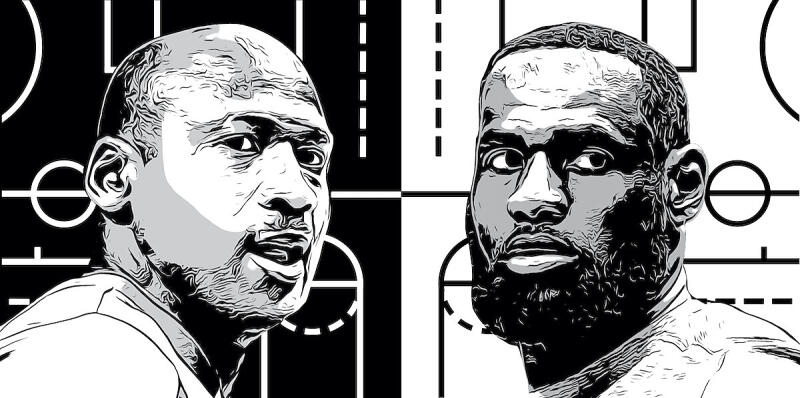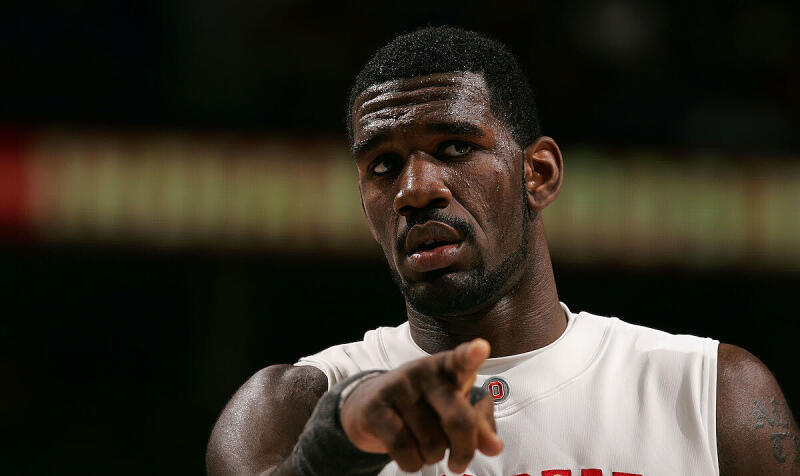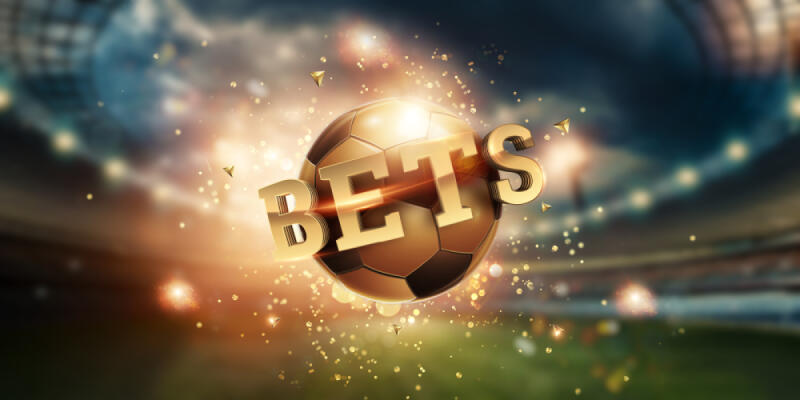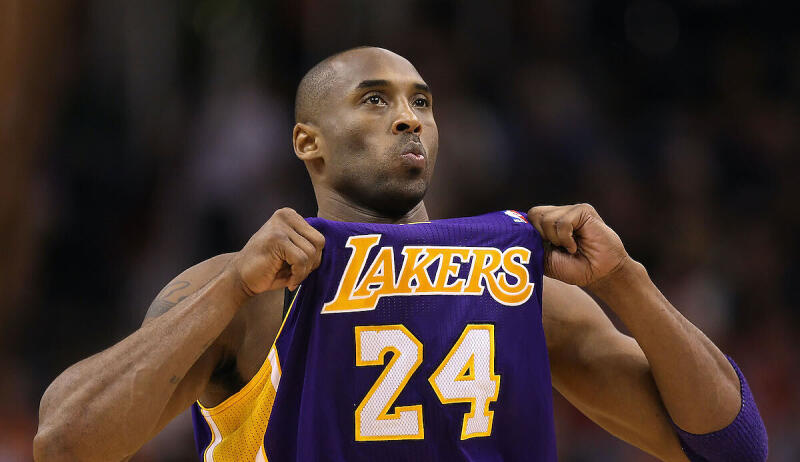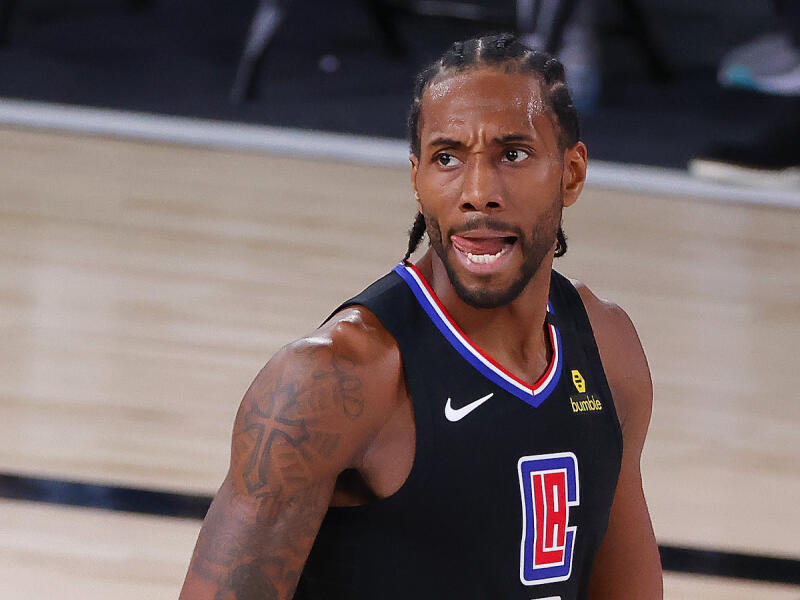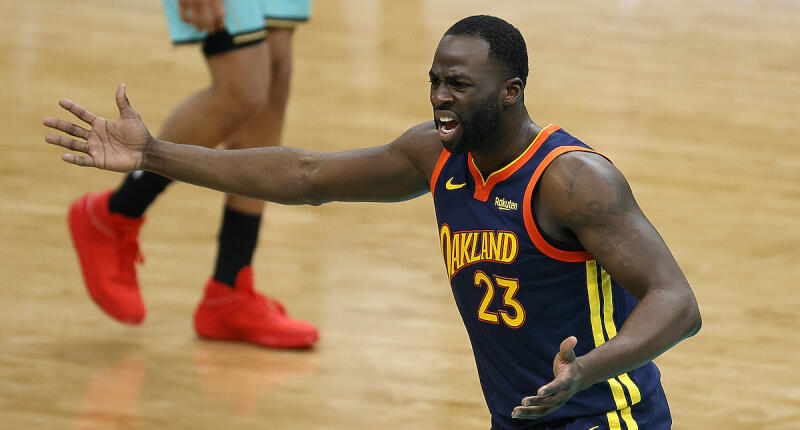Every NBA Team's Best Duo Ever
Before super squads became a thing in the NBA, franchises would be fortunate to roster a pair of players with prodigious star power.
We take a look at the history of each team to unearth its perfect pairings.
Atlanta Hawks: Bob Pettit and Cliff Hagan
Buy a peach basket and break out the Encyclopedia Britannica to learn more about Bob Pettit and Cliff Hagan, who played nine seasons together for the St. Louis Hawks in the 1950s and 1960s.
Petit was a two-time scoring champion while Hagan served as a complementary threat at small forward, and the pair pulled off the only championship for the Hawks franchise in 1958.
Kevin Willis and Spud Webb came close, but they couldn’t reach the success Pettit and Hagan did in the franchise’s nascent stage in another state.
Boston Celtics: Bill Russell and Bob Cousy
Talk about an embarrassment of riches for a franchise that has won 17 Larry O'Brien Trophies, the most NBA championships in league history.
Cousy led the league in assists for eight years in a row, while Russell averaged 22.5 rebounds throughout his career. Russell revolutionized the game defensively and wore the feather in his cap of being Wilt Chamberlain’s kryptonite throughout his career.
Larry Bird and Kevin McHale, Paul Pierce and Kevin Garnett and John Havlicek and Dave Cowens could each easily take top billing for Boston, but Russell and Cousy were extra special when it came to winning.
Brooklyn Nets: Jason Kidd and Vince Carter
Jason Kidd made back-to-back NBA Finals appearances with Richard Jefferson and Kenyon Martin, but once the Half-Man, Half-Amazing Vince Carter entered the picture in New Jersey through a midseason trade, they became required viewing in what was at the time the ho-hum Eastern Conference from 2005 to 2009.
Although Kyrie Irving and Kevin Durant have yet to play a minute on the court together, they can surpass Kidd and Carter with consistent winning ways.
Charlotte Hornets: Larry Johnson and Alonzo Mourning
Charlotte hit the jackpot with their draft picks of Larry Johnson and Alonzo Mourning in back-to-back years, taking Grandmama with the first overall pick in 1991, and Zo with the second pick in 1992.
They didn’t accomplish much in their three years together other than looking great in teal uniforms, but they did bounce Boston out of the playoffs in 1993 and offered many highlights that still stand the test of time.
Chicago Bulls: Michael Jordan and Scottie Pippen
Michael Jordan and Scottie Pippen are the most dominant duo ever, and it’s not even up for discussion. A thesis can be written dissecting how they ruled and reigned in the 90s by winning six NBA championships.
For the sake of time and space, we won’t dive into all of their much known and detailed accomplishments of which accumulated as teammates from 1987 to 1998. But we’ll leave you with this—Jordan is the greatest basketball player who ever lived, and Pippen is the best two-way player of his generation.
Cleveland Cavaliers: LeBron James and Kyrie Irving
LeBron James and Kyrie Irving will forever live in Ohio lore for delivering the Cavaliers their first-ever NBA Championship in 2016. The title was even more special for them because they defeated the best regular-season team in NBA history, coming back from a three-games-to-one deficit against the Warriors.
James will one day have a statue sitting outside in what is now known as the Rocket Mortgage FieldHouse.
Dallas Mavericks: Dirk Nowitzki and Steve Nash
Dirk Nowitzki had several All-Star sidesicks during his 21-year run in Dallas, but Steve Nash, from 1998 till 2004, was undoubtedly the best.
Nowitzki secured an MVP trophy (2007) and NBA Finals win (2011) with a who’s who of running mates that included Jason Kidd, Jason Terry, Michael Finley, Josh Howard and Shawn Marion, but his time with Nash was incomparable, even if it didn’t equate to similar success on the hardwood.
They mustered off only one conference finals appearance, but they changed the DNA of a franchise long stuck in the doldrums of the league prior to their arrival.
Denver Nuggets: Alex English and Kiki Vandeweghe
From 1980 to 1984, Alex English and Kiki Vandeweghe were one of the league’s top scoring threats. During that stretch, English averaged 26 points per game while Vandeweghe kicked in with 22.2 points a game.
The Hall of Famer English led the league in scoring during the 1982-83 season. The following year, he combined with Vandeweghe to net a whopping 55 points a game. Their buckets and regular season success did not translate over to the playoffs, however, as they never advanced past the second round together.
Carmelo Anthony and Marcus Camby deserve an honorable mention for filling up the stat sheet on both ends of the court from 2003 to 2008.
Detroit Pistons: Isiah Thomas and Joe Dumars
Isiah Thomas and Joe Dumars were the Hall of Fame linchpins behind the Bad Boys of the 1980s and won back-to-back NBA titles in 1989 and 1990, beating the Blazers and Lakers, respectively.
Thomas and Dumars manned a backcourt together from 1985 and 1994 and had a motley crew of cast members featuring the helping hands of Dennis Rodman, Vinnie Johnson, Bill Laimbeer and Rick Mahorn.
The pick ‘em trio of Chauncey Billups, Richard Hamilton and Ben Wallace, who made two finals appearances in the 2000s and won it all in 2004, deserve an honorable mention.
Golden State Warriors: Stephen Curry and Klay Thompson
Stephen Curry and Klay Thompson made the NBA Finals for five consecutive years from 2015 to 2019 and won three of them with the help of Draymond Green, Kevin Durant and a cast of other former high-profile players past their prime.
Their book has not yet been fully written, but by the time it does, they should be sitting comfortably as the No. 1 and No. 2 three-point marksman off all time.
Houston Rockets: Hakeem Olajuwon and Clyde Drexler
Hakeem Olajuwon and Clyde Drexler made their four years in Houston count considerably, winning back-to-back titles in 1994 against the Knicks and 1995 against the Magic.
The master of the Dream Shake baked his legacy with the Rockets as the franchise’s all-time best player during his 17 seasons in the Lone Star State.
Drexler latched on for the Indian summer phase of his career and played meaningful minutes next to Olajuwon and a supporting cast that featured Sam Cassell, Robert Horry and Vernon Maxwell.
Tracy McGrady and Yao Ming also deserve an honorable mention from their days playing together in 2004 through 2009.
Indiana Pacers: Reggie Miller and Rik Smits
Reggie Miller never had a preeminent teammate throughout his 18-year career as a Pacers sharpshooting sniper. When Miller finally made the NBA Finals in 2000, he was joined by Chris Mullin, who was on the back end of his career, and Jalen Rose, who would soon be on his way out of Indiana.
One Indianapolis mainstay who also played his entire career with the Pacers was Rik Smits.
The Dunking Dutchman averaged 14.8 points throughout his 12 year career to complement the league’s second all-time three point leader. Smits retired after losing to the Lakers in the Finals, and Miller never got close to a ring again thereafter.
Los Angeles Clippers: Chris Paul and Blake Griffin
Paul and Griffin — and Deandre Jordan — played together from 2011 to 2016 and made the playoffs each year, consistently compiling over 50 wins each season except for the lockout-shortened one. Although they stuffed the stat sheet just as prodigiously as the SportsCenter highlight packages, they failed to deliver in the postseason, never making it past the conference semifinals.
Should they once and for all introduce winning ways to the Clippers, Southern California grown players Kawhi Leonard and Paul George could be coronated as the team’s best tandem before their careers come to a close.
Los Angeles Lakers: Magic Johnson and Kareem Abdul-Jabbar
Much like the Celtics, their archrival Lakers have a pick-your-poison worth of pairings that would make any sane person pull their hair out trying to pick the best, going all the way back to Hall of Famers George Mikan and Jim Pollard in the 1950s.
Then there were the big three of Jerry West, Elgin Baylor and Wilt Chamberlain, who played four seasons together and won a championship together in 1972. Kobe Bryant and Shaquille O'Neal won three titles together, and for good measure, Bryant won two more with Pau Gasol. Lebron James and Anthony Davis can join the list too by playing several seasons together and winning at least one championship.
The aforementioned couples can perhaps top every team for this rankings piece, but not for the Lakers.
Their relationship kicked off in spectacular style during Johnson’s rookie year. Magic lived up to his moniker in the NBA finals, and started at center in place of an injured Abdul-Jabbar and delivered the game of his life with a 42-point performance to clinch the series on the road in Philadelphia.
Even though Johnson eased the load Abdul-Jabbar had to carry, The Captain and sky-hook master is still the league’s all-time leading scorer, while Johnson retired with the since-broken assists record.
Memphis Grizzlies: Mike Conley and Marc Gasol
The Grizzlies only recently celebrated their 25th year as a franchise, and thus, have the weakest one-two punch on this list.
Mike Conley and Marc Gasol played together from 2008 to 2018, and reached the playoffs seven straight seasons.
Gasol was a three-time All-Star and an NBA Defensive Player of the Year, while Conley was a pesky guard who slowly developed a three-point shot, scoring proficiency and a max contract before being traded to the Jazz.
Miami Heat: LeBron James and Dwyane Wade
LeBron James shifted the NBA landscape in the summer of 2010 when The Decision led him to unite forces with Dwyane Wade in Miami, who was already a top-tier player in the league and an NBA champion with the help of Shaquille O’Neal.
James jettisoned South Beach in 2014 and returned to Cleveland, and was later joined again by Wade in 2017, who was by then a shell of his former self.
The two stars still remain best friends today and are possibly breeding the next generation.
Their sons Bronny James and Zaire Wade are teammates at Sierra Canyon High School in Los Angeles.
Milwaukee Bucks: Lew Alcindor and Oscar Robertson
When the Cincinnati Royals stunningly traded Oscar Robertson ahead of the 1970-71 season, it was music to the ears of Lew Alcindor.
The tandem immediately leveraged their skills and star power and delivered Milwaukee their first and only NBA title the same season. One day after the Bucks won the NBA championship in 1971, Alcindor changed his name to Kareem Abdul-Jabaar.
Robertson played the last four years of his career for the Bucks and retired in 1974. A year later Jabaar joined the Lakers.
Minnesota Timberwolves: Kevin Garnett and Wally Szczerbiak
The Big Ticket never truly had The Big Helper.
Szczerbiak was a solid player next to Garnett from 1999 until 2006 averaging 15.5 points, but that title was supposed to go to Stephon Marbury in 1996 before he left town in just two seasons.
Garnett’s best season in Minnesota was when he, Szczerbiak, Sam Cassell and Latrell Sprewell led the team to a first-place regular-season finish and took the Lakers to six games in the conference finals in 2004.
Garnett finished his Wolves career averaging 20 points and 11 boards, averages that dipped a bit because of a second stint with the team before he retired. The Hall of Famer’s winning days came in Boston due to a supporting cast he was never privy to in Minnesota.
New Orleans Pelicans: Chris Paul and David West
Chris Paul and David West were teammates from 2005 to 2011. The dime-dishing Paul helped West blossom into the future All-Star he’d eventually become.
It took some time for Paul and West to make the leap, as they missed the playoffs their first two years together, but made it three times after that, getting out of the first round only once.
New York Knicks: Willis Reed and Walt Frazier
Before the Knicks became the doormats of the league, Willis Reed and Walt Frazier shaped a legacy for the franchise that still stands in lore today. Reed and Frazier were teammates from 1967 to 1974, and won championships for New York in 1970 and 1973.
Reed sits outside of the NBA’s top 15 list of centers even though he was a seven-time All-Star who made five All-NBA teams and also won an MVP award. The seven-time All-Star Frazier’s best days were played alongside Reed in the Big Apple before he moved on to play for the Cavaliers.
Oklahoma City Thunder: Kevin Durant and Russell Westbrook
Thunder GM Sam Presti has the greatest three-year stretch in draft history. In 2007 he took Kevin Durant, followed by Russell Westbrook and Serge Ibaka in 2008, and finally James Harden in 2009.
By 2011, the Thunder were playing in the NBA Finals.
Both won scoring titles in a five out of a six year stretch, highlighted by Durant’s MVP year in 2013. They also took the team to four conference finals. The still-developing Harden was a part of two of them.
After KD left OKC in 2016, serious animosity was built between the stars as Westbrook felt betrayed. They have since somewhat repaired their relationship, as Westbrook reunited with Harden in Houston.
Orlando Magic: Shaquille O’Neal and Anfernee Hardaway
Shaquille O’Neal and Anfernee Hardaway were supposed to be the saviors of a recently formed expansion franchise. The Magic drafted Shaq with the first overall pick in 1992 and landed Penny the year after in a draft-day trade.
The duo gave it another try the following year, but Jordan exacted revenge and swept them in the conference finals.
It was the last time Shaq was in an Orlando uniform, and Hardaway’s career careened shortly afterward due to injuries.
A diet version of Shaq and Penny emerged years later when Dwight Howard and Jameer Nelson teamed up, but they never had the aura, or fans thinking “what if” quite like their predecessors did.
Philadelphia 76ers: Julius Erving and Moses Malone
Julius Erving and Moses Malone played just four seasons together, but they made sure their time together counted as they won the 1983 NBA crown.
The high-flying and jump shooting Dr. J was a perfect partner for Malone, who made paydirt working the glass and gassing the paint.
Phoenix Suns: Steve Nash and Amar'e Stoudemire
Mike D’Antoni’s seven-seconds-or-less mantra survives to this day because Steve Nash and Amar'e Stoudemire ran the offensive scheme with entertaining perfection as teammates from 2004 to 2010.
In his second stint in Phoenix, Nash won back-to back-MVPs (and was the runner up for a third) from 2005 through 2007 during his first three seasons with the team.
Before splitting, Nash and Stoudemire made it to three conference championships but never into the Finals.
Portland Trail Blazers: Clyde Drexler and Terry Porter
Teammates from 1985 to 1995, Clyde Drexler and Terry Porter took Portland to two NBA Finals, one in 1990 and the other in 1992.
Drexler was one of the league’s top-scoring threats and a member of the 1992 Dream Team. Porter was one of the NBA’s top three-point shooters at the time.
Their workmanlike approach made Portland into a perennial powerhouse, but Drexler could never win the big one until he left for Houston.
Sacramento Kings: Chris Webber and Peja Stojaković
Chris Webber and Peja Stojaković breathed new life into a dormant franchise, nearly teaming up to achieve an NBA Finals berth in 2002 by taking the Lakers to the brink.
Stojaković and Webber entered Sacramento at the same time in 1998, and went on to consistently drop a combined 40-plus points a game thereafter.
Webber was traded midway through the 2005 season. Stojaković suffered the same fate in 2006, and the Kings have not made the playoffs since.
Their run in 2002 still stands today as the furthest the franchise has gone in the playoffs in 40 years.
San Antonio Spurs: Tim Duncan and Tony Parker
Five-time NBA champion Tim Duncan was fortunate to have a supporting cast so he can stick to his Big Fundamental ways throughout his 19 year-career in San Antonio.
The No. 1 overall pick entered Texas in 1997 and was immediately paired up with David Robinson, forming the Twin Towers. By the next season, Duncan was already coming off Rookie of the Year honors and winning an NBA championship.
By the time The Admiral retired in 2003 in another title-winning year, Duncan was already joined by Manu Ginobli and Tony Parker — and much later Kawhi Leonard.
Duncan enjoyed over a decade with Ginobli and Parker as teammates, but it was the Frenchman — highlighted by a 2007 NBA Finals MVP — who just beat out the Argentinian as Duncan’s most significant contributor.
Toronto Raptors: Kyle Lowry and DeMar DeRozan
Vince Carter and Tracy McGrady might be the sexy pick, but Kyle Lowry and DeMar DeRozan made Toronto a perennial playoff contender, year in and year out. The two played on the same team from 2012 to 2018, making the playoffs the last five years before DeRozan, the team’s all-time scoring leader, was traded to San Antonio for Kawhi Leonard.
The timing turned out to be unfortunate for DeRozan and perfect for Leonard, who won a second NBA title in his lone season in Canada.
Utah Jazz: Karl Malone and John Stockton
Karl Malone and John Stockton entered Utah in back-to-back years, Stockton first in 1984, Malone next in 1985, and formed one of the league’s top formidable duos to close the century.
Malone and Stockton were Jazz teammates until 2003, climbing to reach the NBA Finals twice in 1997 and 1998 against the Bulls, both of which ended in six-game series losses.
Malone sits today as the league’s second-leading scorer of all-time, a mark that should be passed soon by LeBron James.
Washington Wizards: Wes Unseld and Elvin Hayes
The frontcourt duo of Wes Unseld and Elvin Hayes was a fearsome one from 1972 until 1981.
In 1978, the Hall of Fame players delivered the Bullets the franchise’s only championship.
Hayes was the better all-around player and scorer, while Unseld banged the glass to the tune of 14 per game throughout his career and chipped in with 10 points.
Photo: Getty Images/ Lines.com Illustration
Our editorial content strives to be highly informative and educational to our audience, especially for visitors who are new or relatively new to analyzing and predicting sporting event results. All of our content is created by informed writers with backgrounds in their subject area and reviewed for omissions or mistakes.
Our editorial team is run by individuals with many years of experience in digital publishing, editorial, and content production. Our editorial content is always marked clearly in any instances where it may be sponsored by a third party, though it is still reviewed by our staff to ensure it remains consistent with our company mission.
- Popular
- Latest

